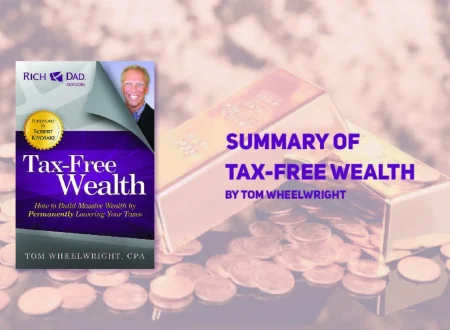Tax Planning Strategies for High Income Earners:
Tax Planning Strategies for High Income Earners are essential for managing complex financial obligations and reducing tax burdens effectively. With the right tax planning strategies, you can significantly reduce your tax burden while ensuring your financial goals are aligned with your long-term wealth-building plans. This guide provides effective tax planning strategies designed to help High Income earners preserve wealth, optimize investments, and increase after-tax income.
1. Maximize Contributions to Tax-Deferred Retirement Accounts
One of the most straightforward ways to reduce taxable income is by contributing to tax-deferred retirement accounts, such as 401(k) and traditional IRAs. Contributions to these accounts are typically tax-deductible, meaning they lower your taxable income in the year they’re made. Here’s how High Income earners can benefit:
- 401(k) Contributions: In 2023, the annual contribution limit for a 401(k) is $22,500, or $30,000 if you’re 50 or older. Maxing out your contributions to this account allows you to reduce taxable income and defer taxes on investment growth until retirement.
- Backdoor Roth IRA: Top level salary workers might be ineligible to contribute straightforwardly to a Roth IRA because of pay limits. However, a “backdoor” Roth IRA strategy lets you contribute to a traditional IRA and then convert it to a Roth, allowing you to benefit from tax-free growth in retirement.
- SEP IRAs and Solo 401(k)s for Self-Employed: If you are self-employed or run a small business, SEP IRAs and Solo 401(k)s offer high contribution limits, allowing you to save more while reducing your taxable income.

2. Leverage Health Savings Accounts (HSAs)
Health Savings Accounts (HSAs) are often underutilized but provide a triple tax advantage: contributions are tax-deductible, growth is tax-free, and withdrawals for qualified medical expenses are also tax-free. Here’s why they’re beneficial for High Income earners:
- Additional Retirement Savings: While HSAs are primarily intended for healthcare costs, they can also be used as an additional retirement account.
- Annual Contribution Limits: In 2023, the contribution limit for an HSA is $3,850 for individuals and $7,750 for families, with an additional $1,000 catch-up contribution for those aged 55 and older.
- Tax-Free Growth and Rollover Benefits: Unlike Flexible Spending Accounts (FSAs), HSAs do not have a “use it or lose it” rule. Unused funds in an HSA can roll over each year, allowing High Income earners to accumulate a substantial amount over time, tax-free, and use it in retirement or for future healthcare costs.

3. Utilize Charitable Donations Wisely
Charitable contributions can be an excellent tool for High Income earners to reduce taxable income while supporting causes they care about. Here’s how to maximize the tax benefits of charitable giving:
- Donor-Advised Funds (DAFs): A DAF allows you to make a charitable contribution, receive an immediate tax deduction, and then distribute the funds to charities over time. This can be particularly useful in High Income years when you want to maximize deductions.
- Appreciated Assets: Donating appreciated securities, such as stocks, is another tax-efficient way to give to charity. By donating appreciated assets, you can avoid paying capital gains tax on the increase in value, which can be especially beneficial if you’ve held the investment for over a year.
- Qualified Charitable Distributions (QCDs): For those aged 70½ and older, QCDs allow direct transfers from IRAs to qualified charities. These donations can satisfy Required Minimum Distributions (RMDs) without increasing taxable income, making them a powerful tool for High Income retirees.

4. Explore Real Estate Investments for Tax Benefits
Real estate can be a powerful tool for tax-efficient wealth-building. Here are some tax benefits High Income earners can tap into with real estate:
- Depreciation Deductions: The IRS allows real estate investors to deduct depreciation on rental properties, which can significantly reduce taxable rental income. Depreciation is a non-cash expense, so it doesn’t impact your cash flow but can lead to substantial tax savings.
- 1031 Exchanges: A 1031 trade permits you to concede capital increases charge on the offer of a speculation property by reinvesting the returns into another property. This strategy is valuable for High Income earners looking to grow their real estate portfolio without triggering large tax bills.
- Opportunity Zones: Investing in designated Opportunity Zones allows investors to defer and potentially reduce capital gains taxes while supporting economic growth in underserved areas. Opportunity Zone investments must be held for a minimum period to realize the full tax benefits, so this strategy is best for those with a long-term investment horizon.

5. Take Advantage of Qualified Small Business Stock (QSBS) Exclusion
If you’ve invested in or are considering investing in a small business, the Qualified Small Business Stock (QSBS) exclusion can be highly advantageous. Here’s how it works:
- Tax-Free Gains: Under Section 1202 of the Internal Revenue Code, you may be able to exclude up to 100% of capital gains on the sale of QSBS if you’ve held the stock for at least five years. This exclusion applies to gains up to $10 million or 10 times your investment, whichever is greater.
- High Growth Potential: The QSBS exclusion is particularly beneficial for High Income earners looking to invest in innovative, high-growth companies, as it provides significant tax savings on future gains.
- Qualified Capital Investment in Start-Ups: Many start-ups or small businesses qualify for QSBS treatment, so by choosing investments in qualifying small businesses, High Income earners can not only benefit from the tax exclusion but also support new ventures that align with their values or industry expertise.

6. Use Income Splitting Techniques for Families
Income splitting involves transferring income from a High Income earner to a lower-income family member to reduce overall tax liability. Here are some strategies:
- Family Limited Partnerships (FLPs): An FLP can allow High Income earners to transfer assets to family members at reduced tax rates. Additionally, the partnership structure provides control over asset management while potentially lowering gift and estate tax exposure.
- Hiring Family Members: If you own a business, consider hiring family members in lower tax brackets. Paying them a reasonable salary for their work allows you to shift income away from your high tax bracket to their lower bracket, reducing overall family tax liability.
- Gifting Strategy for Education Funding: Gifting income to family members, especially minors, in the form of contributions to education funds, such as a 529 plan, can reduce taxable income while benefiting your children or other family members. The income inside a 529 arrangement develop tax-exempt, and withdrawals are tax-exempt whenever utilized for qualified training costs.

7. Optimize Capital Gains and Dividend Income
Capital gains and qualified dividends are taxed at lower rates than ordinary income, which can be a tax advantage for High Income earners with substantial investments. Here’s how to optimize these gains:
- Long-Term Capital Gains: Holding investments for more than a year allows you to benefit from the lower long-term capital gains tax rate, which can be as low as 15% or 20% depending on your income level.
- Qualified Dividends: Many dividends from U.S. corporations qualify for reduced tax rates, similar to long-term capital gains. High Income earners can benefit from holding dividend-paying stocks in taxable accounts to take advantage of these lower rates.
- Asset Location Strategy: Placing tax-efficient investments, such as stocks with qualified dividends, in taxable accounts and holding tax-inefficient investments, such as bonds, in tax-advantaged accounts (e.g., 401(k), IRA) can help reduce your overall tax burden.

8. Establish Trusts for Estate Planning
For High Income earners, estate planning is essential to manage taxes on wealth transfer. Trusts offer a variety of benefits, including tax efficiency and control over asset distribution. Here are a few to consider:
- Irrevocable Life Insurance Trust (ILIT): An ILIT allows life insurance proceeds to be excluded from your estate, helping to reduce estate taxes.
- Grantor Retained Annuity Trusts (GRATs): A GRAT lets you transfer assets to beneficiaries with minimal gift tax impact while allowing you to receive annuity payments. If the assets appreciate more than the IRS’s assumed interest rate, the excess value passes to beneficiaries free of additional tax.
- Charitable Remainder Trust (CRT): A CRT allows you to receive income from the trust for a set period, after which the remainder goes to a designated charity. This strategy provides income, reduces taxable estate, and allows a charitable deduction.

Conclusion
Tax Planning Strategies for High Income Earners require a proactive approach considering current and future financial goals. By leveraging tax-advantaged accounts, investing in real estate, utilizing charitable donations, managing AMT exposure, and exploring advanced estate planning strategies, High Income earners can significantly reduce their tax burdens and preserve more wealth for the future. Working with a tax advisor who understands the nuances of High Income tax planning is often invaluable, as they can help tailor these strategies to your specific financial situation.
Discover amazing information and unique finds on FuseBay! Don’t miss out—must visit our website for exclusive articles and top-notch blogs tailored just for you!





